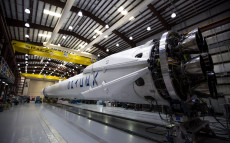- pathfindersAI
- Job Profile
Photonics Technicians
Summary
Understanding the Role of a Photonics Technician: A Comprehensive Guide
What They Do
Photonics Technicians work at the fascinating intersection of light and technology. These professionals are crucial in industries that involve the manipulation, control, and generation of light, such as telecommunications, medical devices, manufacturing, and defense. Their primary focus lies in the application of technologies like lasers, fiber optics, and imaging. The essence of their work involves developing, testing, and maintaining photonic equipment and systems that are essential for various high-tech applications.
Job Responsibilities
Photonics Technicians are tasked with a range of detailed and technical responsibilities. These include the assembly and calibration of photonic devices, testing and troubleshooting equipment, and developing prototypes. They also work closely with engineers and researchers to interpret technical schematics and diagrams, ensuring that projects align with precise specifications. Regular maintenance and inspection of photonic machinery are essential parts of their role, alongside documenting their findings and generating detailed reports to improve system efficiency and reliability. Moreover, they may assist in training less experienced technicians, providing guidance within their specialized area of expertise.
Essential Skills
Photonics Technicians must possess a robust blend of technical, analytical, and problem-solving skills. Proficiency in using and maintaining laser systems, fiber optic technology, and electronic testing instruments is paramount. They should have strong mathematical skills and the ability to interpret complex data accurately. Attention to detail, manual dexterity, and excellent troubleshooting capabilities are essential to identify and resolve issues effectively. Furthermore, clear communication skills are crucial for collaborating with engineers and scientists, while adaptability and continual learning are necessary to keep pace with the rapidly advancing field of photonics.
Educational Pathways
A career as a Photonics Technician typically starts with specialized education and training. Aspiring candidates often pursue an Associate's degree or a diploma in fields like Photonics, Laser Technology, or Optical Engineering. These programs usually cover core subjects such as electronics, physics, and engineering principles, alongside specific training in photonic systems and applications. Some positions may require further certification or an undergraduate degree, particularly those involving sophisticated research and development. Additionally, hands-on experience through internships or co-op programs is invaluable, providing practical skills and industry exposure that can significantly enhance employability.
Career Prospects
The career prospects for Photonics Technicians are promising, driven by the increasing integration of photonic technologies in various sectors. Industries like telecommunications, healthcare, defense, and manufacturing show robust demand for skilled technicians. Moreover, advancements in renewable energy, aerospace, and material processing further amplify the need for expertise in photonics. Entry-level positions as a Photonics Technician offer substantial room for growth, with opportunities to advance into roles such as senior technician, systems analyst, or even supervisory and managerial positions. With experience and additional education, one might also transition into research and development roles or specialize in cutting-edge sectors such as quantum computing or biophotonics.
Conclusion
A career as a Photonics Technician is both challenging and rewarding, offering a pathway into one of the most dynamic and rapidly evolving fields of technology. With a strong foundation in technical education and hands-on experience, professionals in this domain play a vital role in shaping the future of light-based technologies. The blend of rigorous technical skills, continuous learning, and innovative problem-solving sets the stage for a fulfilling career with significant advancement opportunities and the chance to be at the forefront of technological progress.
Video
Compensation
| State | Median Salary | Median Hourly | Positions |
|---|---|---|---|
| AL | 62,840 | 30.21 | 790 |
| AK | 80,250 | 38.58 | 480 |
| AZ | 61,240 | 29.44 | 1,080 |
| AR | 60,760 | 29.21 | 350 |
| CA | 78,910 | 37.94 | 9,930 |
| CO | 68,470 | 32.92 | 1,540 |
| CT | 81,870 | 39.36 | 490 |
| DE | 63,950 | 30.74 | 60 |
| DC | 103,600 | 49.81 | 290 |
| FL | 64,490 | 31.00 | 2,470 |
| GA | 62,820 | 30.20 | 1,870 |
| HI | 83,840 | 40.31 | 430 |
| ID | 58,360 | 28.06 | 350 |
| IL | 74,040 | 35.59 | 1,000 |
| IN | 75,460 | 36.28 | 640 |
| IA | 58,540 | 28.15 | 620 |
| KY | 57,740 | 27.76 | 410 |
| LA | 64,370 | 30.95 | 1,800 |
| ME | 98,450 | 47.33 | 760 |
| MD | 97,370 | 46.81 | 2,450 |
| MA | 66,000 | 31.73 | 830 |
| MI | 61,990 | 29.80 | 1,910 |
| MN | 74,380 | 35.76 | 850 |
| MS | 71,410 | 34.33 | 440 |
| MO | 66,570 | 32.01 | 620 |
| MT | 61,460 | 29.55 | 210 |
| NE | 60,470 | 29.07 | 350 |
| NV | 82,660 | 39.74 | 530 |
| NH | 65,120 | 31.31 | 460 |
| NJ | 73,510 | 35.34 | 1,100 |
| NY | 60,800 | 29.23 | 2,240 |
| NC | 71,030 | 34.15 | 1,530 |
| ND | 57,120 | 27.46 | 140 |
| OH | 60,790 | 29.23 | 1,540 |
| OK | 76,790 | 36.92 | 840 |
| OR | 62,820 | 30.20 | 900 |
| PA | 66,720 | 32.08 | 2,200 |
| RI | 92,710 | 44.57 | 260 |
| SC | 80,950 | 38.92 | 580 |
| TN | 57,980 | 27.87 | 820 |
| TX | 65,150 | 31.32 | 9,090 |
| UT | 61,420 | 29.53 | 1,200 |
| VT | 55,340 | 26.61 | 190 |
| VA | 92,060 | 44.26 | 3,300 |
| WA | 91,710 | 44.09 | 2,120 |
| WV | 76,000 | 36.54 | 280 |
| WI | 60,280 | 28.98 | 740 |
| WY | 78,820 | 37.90 | 110 |
Similar Occupations
In this area you will find other occupations that are close to the one you were viewing in tasks, knowledge and work environment. If the primary job profile you are viewing isn't quite to your liking, take a look around and see what else is available.
Basic and Premium Accounts have more alternative occupations available than the Free account.

Aerospace Engineering and Operations Technologists and Technicians - 17-3021.00
Aerospace Engineering and Operations Technologists and Technicians assist in the design, testing, and maintenance of aircraft, spacecraft, and related systems and equipment. They utilize technical skills and advanced tools to ensure the functionality, safety, and efficiency of aerospace technologies and operations.
-
$77,830/yr
Median Pay -
10,640
Number of Jobs

Calibration Technologists and Technicians - 17-3028.00
Calibration Technologists and Technicians are responsible for testing, maintaining, and adjusting precision instruments and equipment to ensure their accuracy and functionality. They meticulously calibrate a variety of devices, ensuring they meet established standards and specifications necessary for optimal performance.
-
$62,790/yr
Median Pay -
13,220
Number of Jobs